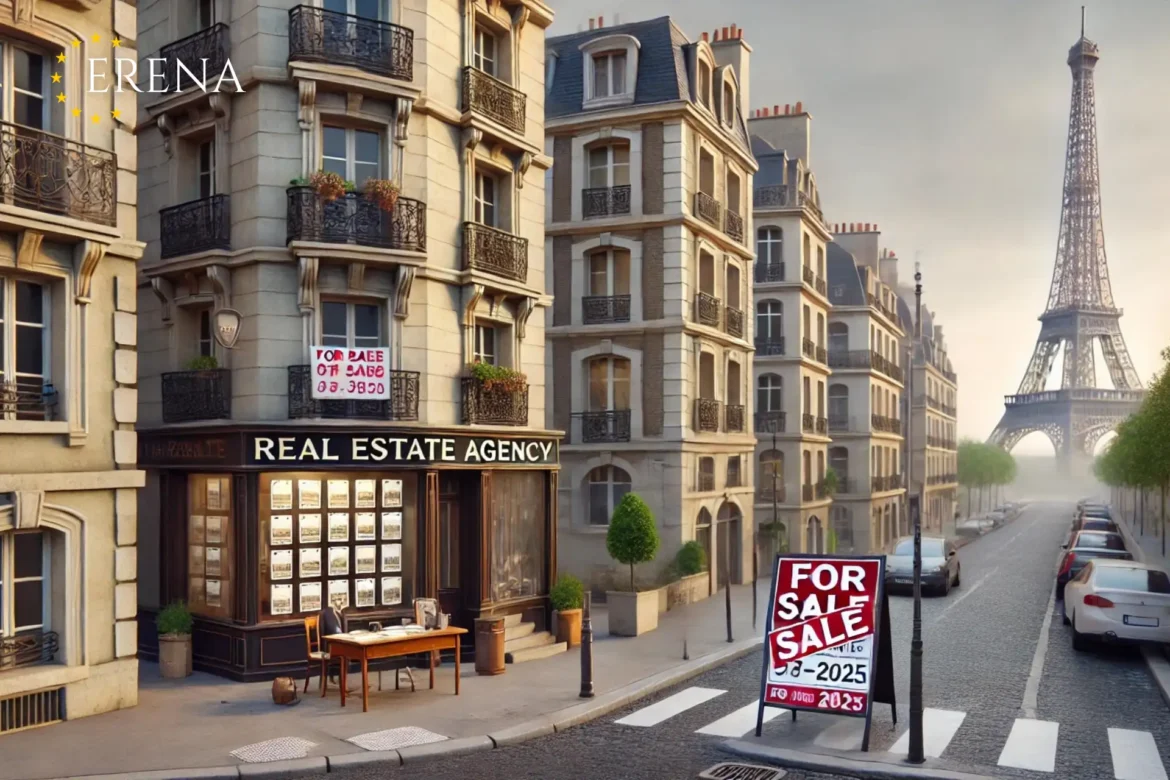At the beginning of 2025, the French real estate market faced a noticeable decline in transaction volume. This downturn is attributed to a combination of macroeconomic factors, changes in tax policies, rising interest rates, and decreasing purchasing power among the population. In this article, we will examine the key reasons for the decline, its impact on various market segments, and potential recovery prospects.
Main Causes of the Decline in Transactions
1. Rising Interest Rates
One of the primary reasons for the drop in real estate transactions has been the increase in mortgage interest rates. In response to inflationary pressures, the European Central Bank (ECB) continued tightening its monetary policy, pushing mortgage rates up to 4-5%. This made loans less affordable for citizens, leading to a decrease in demand for housing.
2. Economic Instability
The French economy in early 2025 is experiencing difficulties due to slowing GDP growth, high inflation, and declining real incomes among the population. These factors have negatively impacted the purchasing power of citizens, reducing their interest in buying property. Additionally, companies are adopting a cautious approach to investments, which negatively affects the commercial real estate sector.
3. New Tax Reforms
At the end of 2024, the French government introduced new tax measures aimed at regulating the real estate market. Notably, taxes on secondary property sales increased, and additional fees were imposed on landlords. These changes have discouraged investors from purchasing property for resale or rental purposes.
4. Stricter Environmental Standards
In 2025, new environmental regulations came into effect in France, requiring property owners to invest in energy efficiency upgrades. Many properties on the secondary market fail to meet these requirements, making them less attractive to buyers. Owners are either forced to lower prices or invest significant sums in modernization, impacting overall transaction dynamics.
Impact of the Decline on the Real Estate Market
1. Residential Sector
The most significant decline is observed in the residential real estate sector. In Paris and other major cities, the number of transactions has dropped by 15-20% compared to the same period the previous year. This has led to price stagnation: despite reduced demand, sellers are reluctant to make drastic price cuts, hoping for an improvement in conditions.
2. Commercial Real Estate
The commercial real estate sector is also facing challenges. Demand for office spaces and retail properties has decreased due to the rise of remote work and shifting consumer habits. Many companies prefer renting smaller spaces or negotiating more flexible lease agreements.
3. Secondary Housing Market
The secondary housing market has been hit the hardest. Homes and apartments that do not meet modern environmental standards are losing appeal. Buyers increasingly favor new developments that comply with energy efficiency regulations, leading to an imbalance in the market.
4. Suburban Real Estate
Suburban homes, which saw a surge in demand during the pandemic, have become less popular in 2025. High property taxes and transportation issues make suburban housing less attractive, leading to a decline in transactions in this segment.
Possible Market Scenarios
1. Market Stabilization
Some analysts believe that the French real estate market could stabilize in the second half of 2025. If inflation slows and the ECB eases its monetary policy, interest rates could decrease, making mortgages more affordable. This would gradually restore housing demand.
2. Further Decline in Transactions
Other experts predict a continued drop in transactions and real estate prices. If economic conditions remain unstable and tax pressures increase, the market may enter a prolonged downturn. In this scenario, property prices are expected to fall by 5-10% throughout 2025.
3. Growing Demand for Rentals
As mortgage rates rise, more French citizens are opting to rent rather than buy. This could drive up rental prices in major cities, creating additional challenges for young people and low-income individuals.
The decline in real estate transactions in France at the beginning of 2025 is driven by multiple factors, including rising interest rates, economic instability, new tax measures, and stricter environmental requirements. Depending on the evolution of economic conditions, the market may either stabilize or continue its downward trend. Market participants—buyers, sellers, and investors—must adapt to changing conditions and seek new strategies to navigate the evolving landscape.
Decline in Real Estate Transactions in France in Early 2025
694
previous post

